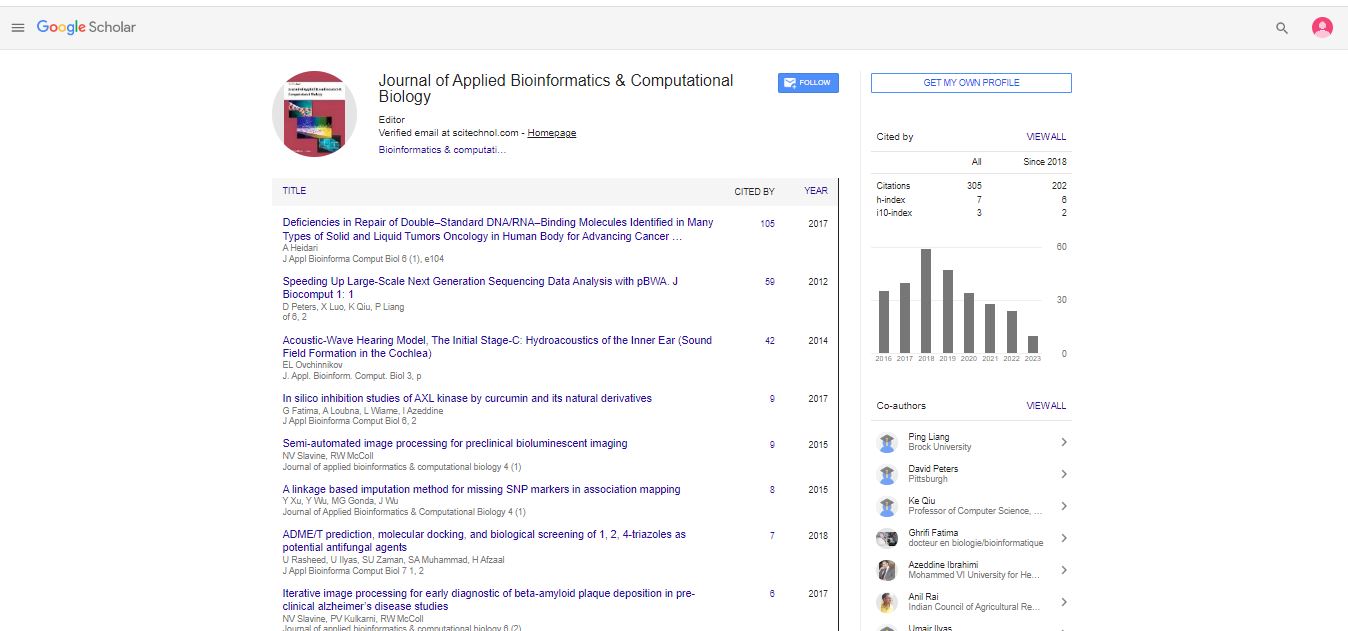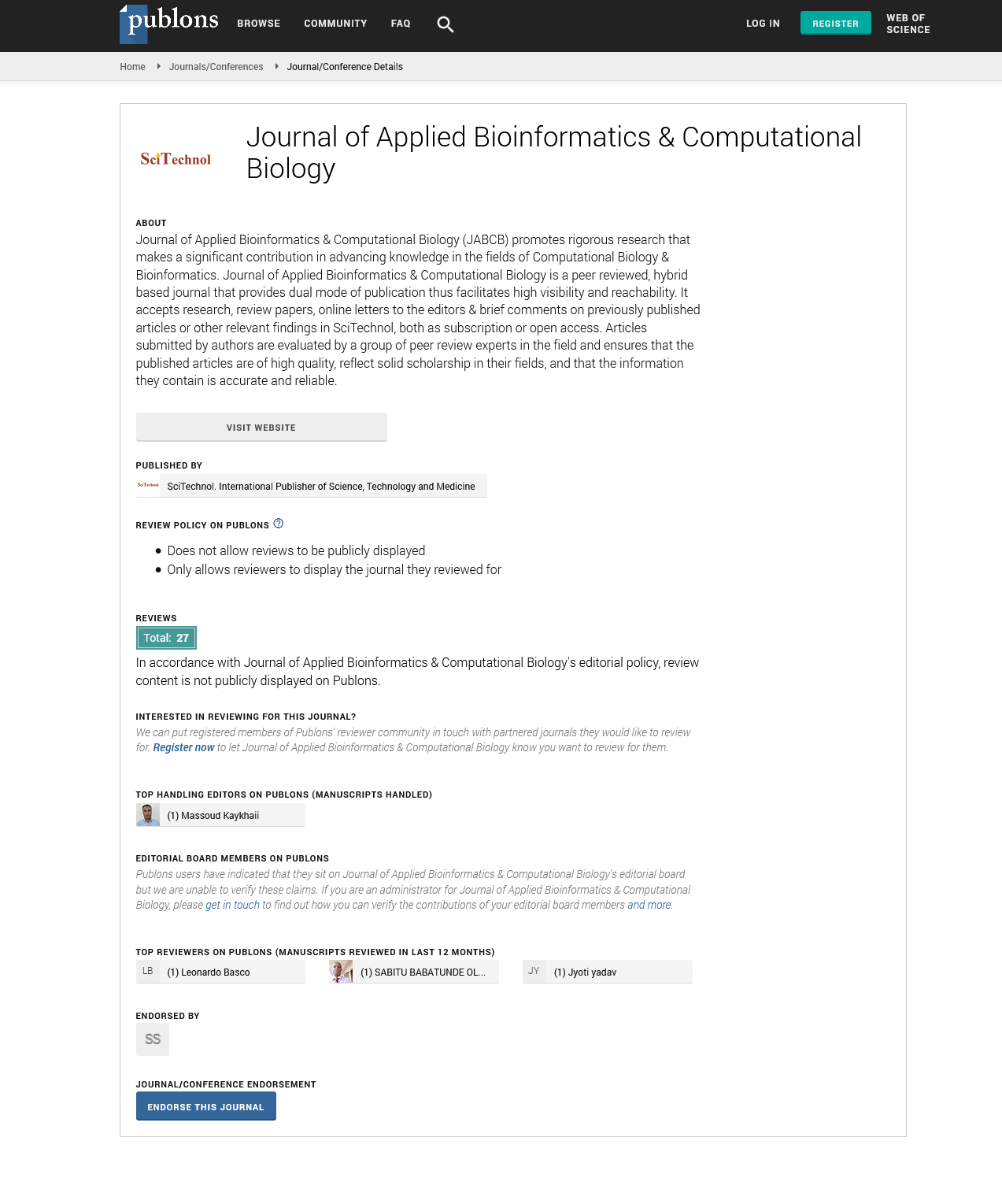Identification of pathogenic antigen: Antibody complexes of Alzheimer’s disease using proxy antigens
Bill Shelander
Anven Biosciences, Inc., USA
: J Appl Bioinforma Comput Biol
Abstract
Alzheimer’s disease (AD) is a progressive, neurodegenerative disease and believed by many to be associated with extracellular amyloid plaques and intracellular neurofibrillary tangles. Researchers have also long suspected that as neurodegeneration occurs in the brain, the immune response propagates disease-related antibodies in the blood, which will lastingly present in the serum of AD patients. However, despite enormous efforts through decades of research, no definitive early blood-based biomarker for the AD has yet been validated. A new approach involving “proxy antigens” provides profound new insights into the pathogenesis of Alzheimer’s disease. By isolating the pathogenic antigen: antibody complexes directly involved in the causation and progression of Alzheimer’s, a direct biomarker of the neurodegenerative disease can measure and monitor the subject’s immune response at the earliest stages of the disease. Proxy antigens are biosimilar, but otherwise non-native, molecules that bind to antibodies in the hypervariable region with exquisite sensitivity and specificity. Using this unprecedented capability, a systematic, step-by-step procedure first isolated the complexes unique to subjects exhibiting Alzheimer’s pathology. Thereafter, the Alzheimer’s-specific proxy antigens provide a clear diagnostic tool to detect whether the Alzheimer’s complexes are present or absent in blood samples. One high-value application of AD-specific proxy antigens can profile and stratify clinical trial populations, i.e. differentiate and predict which subjects would respond to a drug and which would not. For example, a retrospective analysis of archived blood samples from a past clinical trial can be used to unambiguously reassess subgroups of subjects and offer an enriched population for a guided prospective clinical trial. Additionally, and perhaps most importantly, the identified Alzheimer’s complexes provide definitive targets for future therapeutic development.
Biography
E-mail: bill.shelander@gmail.com
 Spanish
Spanish  Chinese
Chinese  Russian
Russian  German
German  French
French  Japanese
Japanese  Portuguese
Portuguese  Hindi
Hindi 
